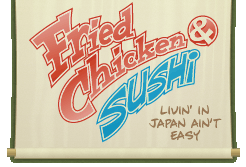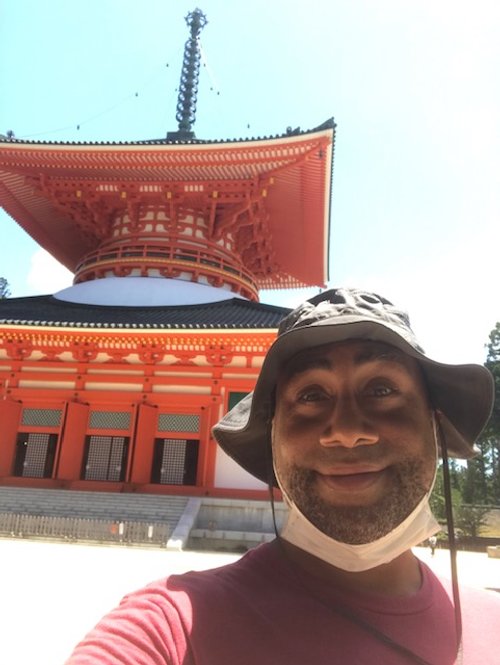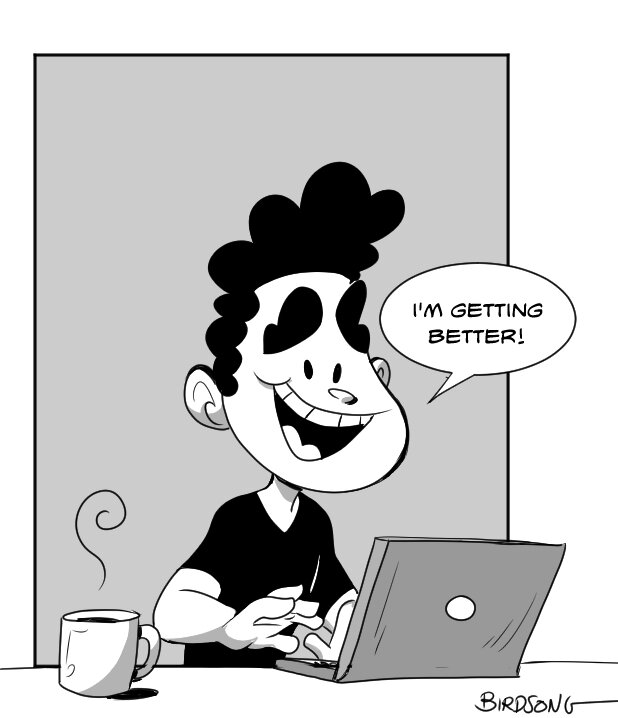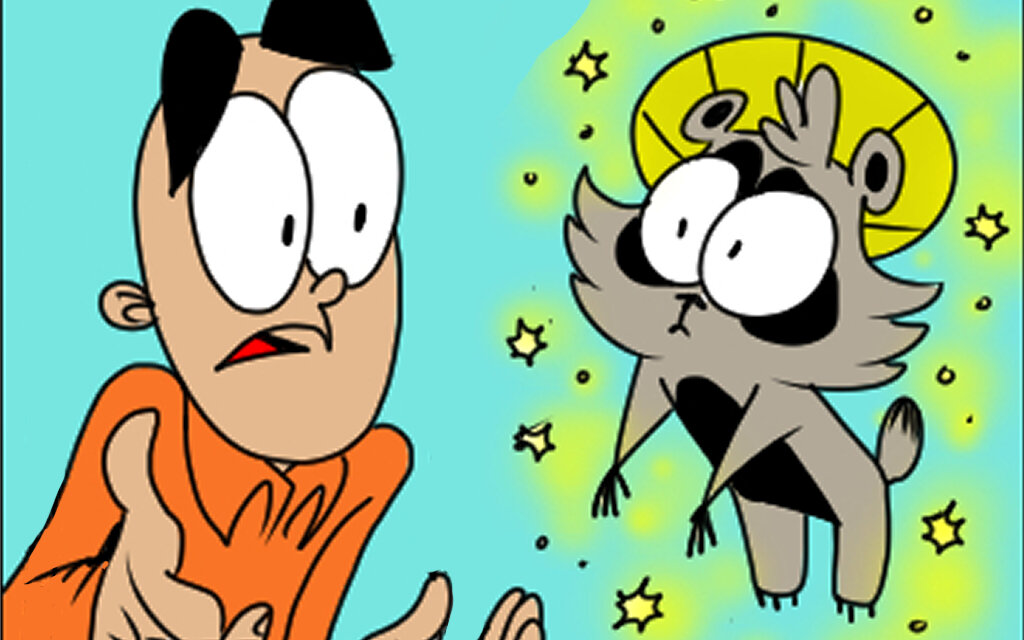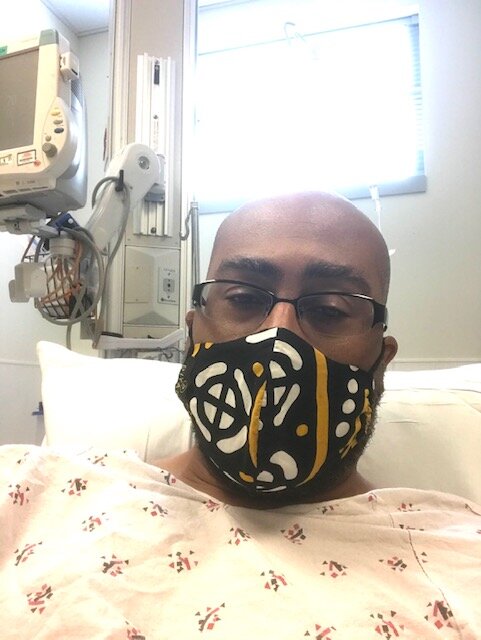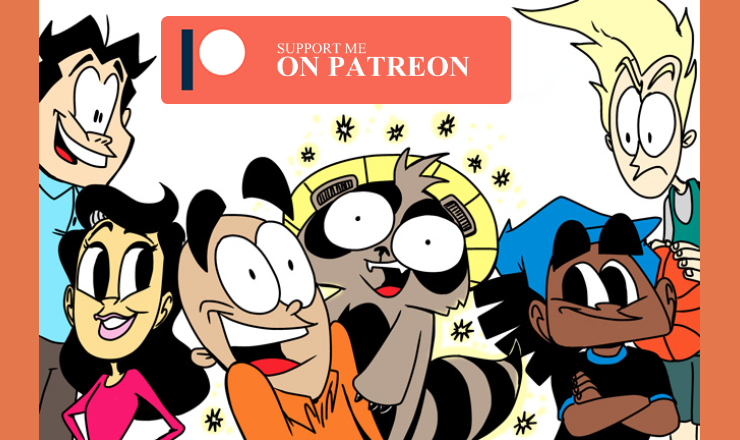Meditating at a Mountain Temple in Japan
/What you can learn from my adventure of mindfulness
All photos were taken by or illustrated by the author.
I like knowing I’m doing the right thing. Who doesn’t?
Making sure to meditate every morning is something I think I’m doing right, but I’m probably wrong. Accepting your biases and thinking your point of view may not be accurate is something I’m working on improving.
I can say, sitting in silence for 10–20 minutes first thing in the morning helps me face my emotions head-on. When it’s time to write or draw, it’s easier for me to plug into my creativity and get going.
There must be something to it.
I just recently returned from a phenomenal trip to Koyasan, a town on top of a mountain full of ancient Buddhist temples in the Kansai region of Japan. I’ve wanted to go for many years. Visiting my in-laws in Osaka allowed me to finally get close enough to make the overnight expedition happen.
Even if you’re not a practicing Buddhist, you can pray in the temples, as long as you throw a few coins in the donation bin before clapping your hands twice and bowing.
Getting up to the temples is no joke.
You can only take a cable car straight up the mountain. Beautiful views, but you definitely feel far removed from the regular world below.
I believe Kobo Daishi, the monk who established the town over a thousand years ago, meant it as a place for zen training and meditation. You can tell by the calmness all around the area.
Many of the original temples were burned down during wars or due to lightning strikes but rebuilt multiple times over the years and are gorgeous.
The temple we meditated in during our visit. The doors were open, but no pictures were allowed inside.
This is the temple next to the ryokan (Japanese traditional style hotel) we stayed in during our visit. The doors are closed now, but they were open for us to have an enjoyable meditation class inside in the morning.
You’re not allowed to take photos of the interior but believe me, the decorations were ornate and beautiful. We had two monks sharing how to pray and meditate.
I remember them mentioning sitting with your legs crossed with the left one under the right. Your hands are in your lap, palms up, with your left hand under your right as well. Somehow, you should close your eyes almost all the way shut, not fully closed, and look down at your nose.
They said this helps you focus more, but I kept closing my eyes after about twenty seconds.
We couldn’t be in the full crossed legs position because the monks had us sit on small benches inside the temple. Placing our hands together and breathing deeply for several minutes is something we could do while sitting.
Looking at my nose and holding my left hand under my right, palms up, helped me focus on being in the present moment. Now, when I’m at home practising, on the floor with my legs folded and my hands, I notice how much smoother I ease into deep meditation.
My mind wanders less at first.
Getting your body in the proper position and posture truly makes a difference. I knew sitting on the floor with my back straight helped before, but now I’m even more convinced stacking your hands and touching your thumbs together helps to center your mind.
The monks showed us that rocking side to side helps to loosen your body if sitting in the position is uncomfortable at first. I understood that even monks have days when sitting correctly may be difficult.
In the beginning, you can always find a way to make something work better for yourself.
Calligraphy writing was surprisingly meditative
We also practised writing calligraphy with a brush pen when we returned to our room. I couldn’t write Japanese, but it didn’t matter. I mainly had to trace.
The kanji characters were underneath; all you had to do was brush over them. The writing is about living a peaceful life, and the monks recited this during our meditation practice time. Writing with a brush pen was meditative and took more time than I thought, but I stuck with it.
I felt there was a lesson there.
The results of my calligraphy writing practice.
As a cartoonist, one of my favorite details about Koyasan, and just about everywhere in Japan, is how they have cute mascots.
This little monk character, Koyakun, was everywhere we went, giving advice and showing us around.
Koyakun was everywhere with helpful signs to guide you.
Koyasan monks practice Shingon Buddhism. Therefore, how they taught meditation goes along with how that particular sect practices.
Even with their advice, I still believe you can meditate any way you choose. It’s easier if you think about it openly and not full of strict rules.
You should start a meditation practice if you haven’t already. We hear some of the benefits of meditation, like more self-awareness and clear thinking, but is this true for everybody? The statistics would say so. In fact, a lot of folks are into “facing themselves” daily.
-It is believed that between 200 and 500 million people worldwide meditate.
-Data from the National Health Interview Survey in 2017 showed that 16.3% of women meditate, compared to 12% of men.
-The Headspace meditation app has been downloaded sixty-five million times. [10]
Meditation should be relaxing, so chill out about the correct way to do it
If you’d like to try meditation, I suggest relaxing your expectations with how you think it should look. Sometimes you can talk yourself out of something great because you feel it must be done a certain way. Like it would be best if you resembled a bald monk sitting cross leg with perfect posture for hours.
I try my best to sit their way, with my left leg under and right leg on top and hands in my lap palms up, but sometimes I sit in a chair.
The most challenging idea for me to accept is that it’s all about mindfulness and not how you sit. Being present when and where you are and noticing your body and thoughts.
That’s it, pretty simple.
Whether you’re doing this for ten minutes — which I think is the minimum amount of time to notice a difference — or an hour, you can focus on yourself anywhere. There are times when I’m stressed that stopping what I’m doing and taking three deep breaths helps to calm me down.
All the distractions in our modern world can block our thinking. You must deal with your emotions, swimming around, desiring your attention, and making space to work things out in your subconscious.
Meditating is genuinely part of a creative life. Add as much of it as possible to your day, and watch as you calm down and think clearly more often.
Of course, I could be wrong, but it’s the most specific change I made to my life over twenty years ago, and I continually see positive results. When life gets crazy, I meditate more.
Here are more stats if you need a push to get started.
-Research conducted in 2016 sought to discover the health benefits of meditation and understand the practice’s growth. Below is the list of reasons given for starting to meditate:
General wellness (76.2%)
Improving energy (60%)
Aiding memory or concentration (50%)
Anxiety (29.2%)
Stress (21.6%)
Depression (17.8%)
In the case of all the above conditions, 60% of the people questioned in the study reported that meditation helped them significantly.
-People who meditate can reduce their chance of being hospitalized for coronary heart disease by 87%. [10]
The groundbreaking research was initially conducted in 1989 and followed up fifteen years later to see if the mantra meditation was still working its magic.
It was found that the group who used the technique had a lower CV mortality rate than those who didn’t participate in the practice.
The 1989 project focused on 73 residents, and further research has backed up the finding; however, it is still felt further research is needed to understand the full effects.
They, just like me, could be wrong.
-But wait! Did you know that 25% of people who meditate report having an unpleasant psychological experience? [23]
I guess meditation isn’t for everyone. A study of 1,232 participants found that a quarter experienced adverse effects such as anxiety, fear, and distorted emotions.
Sure, the study might have been confirmed, but we have no idea what was going on in the lives of the people in this study at the time. You know I’m open to hearing other arguments, but I believe most people will feel positive benefits from regular meditation if they try it for a month or more, and this should be enough time to turn it into a habit.
Try meditating more and see how you feel
You don’t need to travel to Japan and ascend a mountain to practice meditation—hopefully, I helped you see that. When you practice, I bet you’ll appreciate my shared benefits.
I love how you can become more aware of what’s right for you when you meditate regularly. Your “still small voice” gets louder, and you make better decisions. Decisions that are based on what you truly desire.
Knowing how to pause before, say, picking your phone right up when notification dings and waiting to finish writing that page is what I love. You can have more control over yourself when you’re aware of what you’re doing.
Thanks for joining my Koyosan adventure and learning more about meditation.
How do you meditate?
